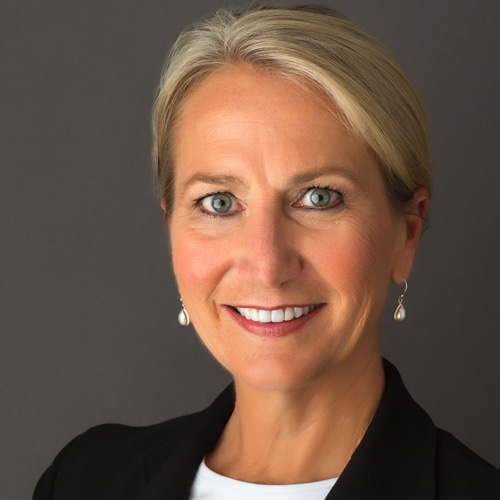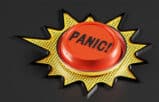After years of working with lawyers, I have concluded that attending lawyer networking events is the most despised marketing activity.

Table of contents
The list of things I’ve been told that lawyers would rather do than work a room is long and painful — have a root canal, get shot in the foot, spend 100 hours teaching … you get the picture.
However, most lawyers have to attend events. Clients have parties, law firms host functions, organizations hold galas, and associations offer networking meetings. If you detest going to these, particularly when you don’t know anyone, I am here to tell you they will be a lot less painful if you are prepared. Even if you never come to enjoy networking functions, you can make them both tolerable and productive if you go about things the right way.
Preparing to Attend
Effective preparation is one sure way to make attending an event easier (or at least less awkward). What should you do?
- Look at the attendee list in advance, or think about who will be there. Conduct some quick research on a few individuals you are likely to see. Remind yourself of things you have talked about recently. Develop ideas for good conversation starters.
- Set objectives. What do you hope to accomplish while you’re there? It could be something like sitting with a specific person at dinner, meeting two new contacts or connecting with a client.
- Prepare your elevator speech. At a networking function, it’s all but guaranteed that someone will ask you what you do. Be ready to explain, in a brief and understandable way, the kinds of clients you represent and how you help them. Have a “for example” of a recent matter (without breaching client confidentiality) that you can deliver to make your practice more memorable.
- Make the most of it. Pack business cards. (Bring enough!) If it’s a cocktail party, eat before you go so you don’t carry a plate (preventing handshakes) or have a mouth full of food (preventing conversation).
- Consider your attire. If it’s a tech industry function, you may want to dress down; if it’s a room full of banking executives, the opposite is probably true.
Attending the Event
I could give you myriad recommendations for being a better networker, but here are some in areas where many lawyers fail.
- Arrive early and stay until the end. If you are racing in for the last 10 minutes of the cocktail party or leaving early to beat the rush, you are not taking advantage of the event. If you go, do it right.
- Ask a lot of questions. Lawyers often tell me one reason they don’t like networking functions is because they don’t know what to talk about. The fact is, you shouldn’t be talking nearly as much as you are listening. Use conversations to identify people’s interests and issues.
- Talk to a number of people. Don’t monopolize one person for too long; it’s a networking event after all. If you are enjoying the conversation or want to spend more time together, schedule a follow-up coffee or lunch. If you don’t know anyone, start by introducing yourself to the event’s hosts, sponsors, organizers, or association president. You can always talk to people who are alone.
- Be strategic. For example, if there is a meal involved, don’t be the first to sit down at a table; you could end up with a competitor on each side. Identify a good companion at the end of the reception and follow that person into the room.
- Try to look self-assured. Even if you don’t feel that way, it’s important to project confidence. Shake hands firmly, smile, make eye contact and introduce yourself to people.
- Get the little things right. Ask for business cards and take a moment to look at them before putting them away. Carry your drink in your left hand so your handshake doesn’t feel like ice. Wear your nametag on the right side so it is more prominent when you shake hands.
- Act like a host. I read a study once that said the difference between people who are good at networking events and those who are not is the good ones act like hosts and the bad ones act like guests. How would your behavior be different if you were the host?
Following Up After the Lawyer Networking Event
Networking doesn’t end when the event is over. Look for ways to follow up with people with whom you connected.
- Write down contact information. Make notes on the back of business cards as soon as you leave so you don’t forget what you learned about the person. Transfer the details into your Outlook notes or CRM system.
- Follow up. Send a personal note saying you enjoyed the conversation, mentioning something you learned. Follow up with something appropriate — an article, a link to a website, an introduction.
- Send a LinkedIn invitation. Take the time to personalize the invitation.
- Update your database. If appropriate, add people to your personal contact list or the firm’s mailing lists for things like alerts or seminar invitations.
- Think about ways to get back in touch. Calendar an outreach after an appropriate amount of time, like calling to set up a lunch meeting or asking for a tour of a company facility.
Maybe It’s Not That Bad
If it’s of any comfort, even lawyers who are great at working a room will tell you it’s exhausting. Effectiveness does not exist without effort. So the next time you have to attend a function, steel yourself for the experience and implement to the best of your abilities. It might not be as bad as a root canal after all.
More Lawyer Networking Tips on Attorney at Work:
- “16 Good Things to Do with a Business Card (Yours and Theirs)” by Merrilyn Astin Tarlton
- “How to Suck at Networking” by Ruth Carter
- “Disengaging from a Dead-End Networking Conversation” by Mike O’Horo
- “How to Introduce Yourself” by Mike O’Horo
Illustration ©iStockPhoto.com
Subscribe to Attorney at Work
Get really good ideas every day: Subscribe to the Daily Dispatch and Weekly Wrap (it’s free). Follow us on Twitter @attnyatwork.
















